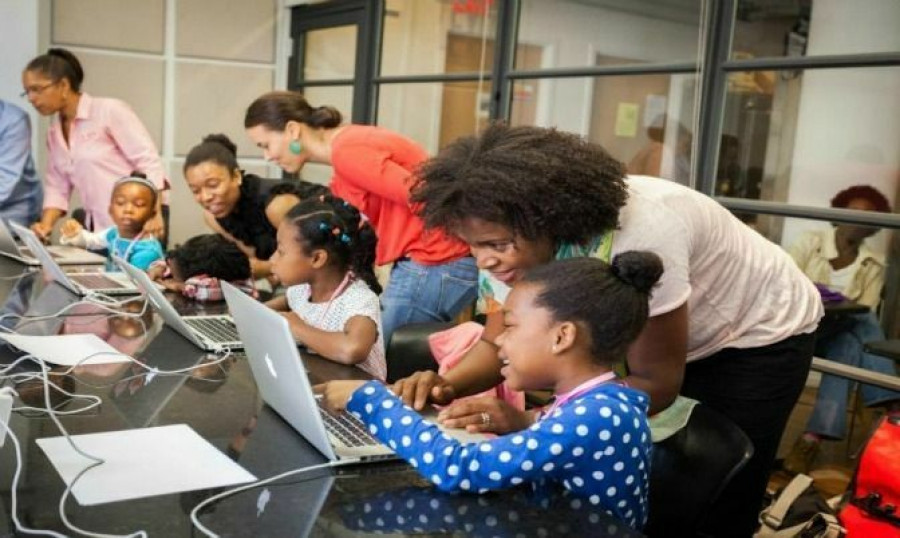The detailed reasons might differ slightly by individual, but ultimately at the root of all reasoning would be an instinctive desire for a parent to want the best future prospects and opportunities for their child. Something the ability to read without doubt provides a linear path to.
One of my early learnings from being in the technology industry has been this: Digital Literacy is becoming as important as learning to read. Technology is advancing fast. Really fast. And its effect will go far beyond the manufacturing plants or retail stores like Blockbuster and HMV we might be more accustomed to. Lawyers will be affected. The insurance industry will be affected. Doctors and surgeons will be affected. Money managers will be affected. Notice a trend yet? Not your typical, if not expected blue collar jobs. These are white collar, well-paying, established industries that have been for the most part deemed safe. This is not even mentioning that in a decade or so, during your daily commutes, you very likely may look over at that tractor-trailer driver or taxi driver and see no one. Think driver-less cars are a gimmick? I wouldn’t bank on it. So what can we do?
Understanding that Black children & youth will frequently face increased challenges social-economically, in the education system and on the path to attaining employment, ensuring that we provide opportunities for them to not only be consumers of technology, but creators as well will be vital. A lot has been documented of the importance of Science, Technology, Engineering and Math (STEM) degrees in the future in securing jobs. Helping these children to ‘code’ is one option that aligns with this. “What is coding?” is a question I frequently get asked. In a very simple way, writing code is understanding one of many computer languages that allows someone to write instructions to a program that gives that program an understanding of what actions to take. For example, on your cell phone – if you can’t hear someone clearly, you turn up the volume. There’s a computer program/software in your phone that has instructions that says something like “If the up volume button is pressed, increase the speaker volume X units” and “if the up volume button is pressed and the speaker volume is at its maximum, output a ‘beep’ sound” so the phone user knows that is the maximum. Code is everything and it’s only going to continue to proliferate.
Because there aren’t a lot of examples and role models of Black technologists that exist, many children may find it more challenging to envision themselves as a web developer or software programmer. Fortunately, there are a number of resources, some free, that provide ways to pique the interest of young minds. I’ve listed some below in no particular:
Computers/Laptops: Pretty self-explanatory, but critically important. You can get a Google Chromebook in the range of $249 and if the financial means are not there for this, public libraries offer free computer services. Keep in mind: What children are doing on their computers matters a lot. I’ve seen kids as young as 7 years old playing games on a computer for hours at the library – some games are fine, but like all else in moderation.
Online Courses: One example is www.tynker.com. Google for many more.
Camps/Workshops: I volunteer for one named Ladies Learning Code. There are a lot of camps throughout the year that are really well organized and are quite rewarding for the children. Coderdojo is another one. Google for more.
Subscription Boxes: Technology ones deliver small objects and kits monthly to children that they then use to create and build something from scratch. This site has many to choose from. Google for other options.
Creative Options: Some children are intimidated or simply don’t like math. Try creative tools to get into their world. If they like basketball and follow NBA players – engage them with math and stats from the NBA. Here’s a U.S. program that is trying this: NBA Math Hoops
Engagement at a young age and finding creative ways to ensure Black children feel like they have a place in the world of technology is one way to help ensure they are prepared to create future technologies and be a contributing member of tomorrow’s digital economy.









